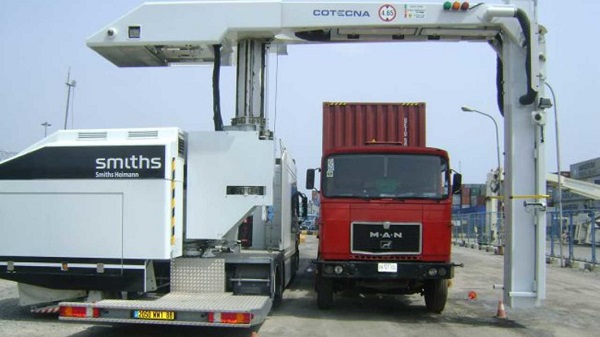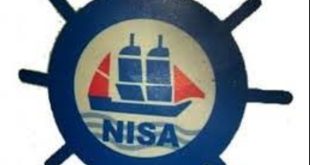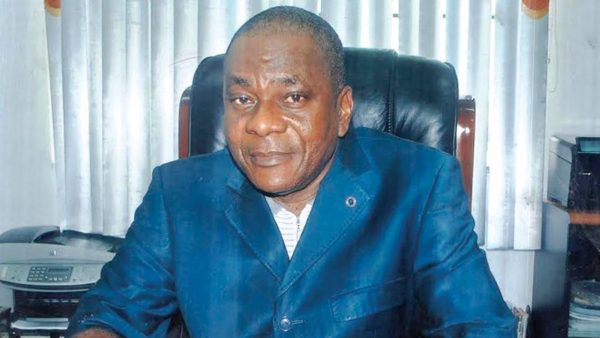 • Stakeholders demand explanation on abandoned units
• Stakeholders demand explanation on abandoned units
• Customs do not have details of procurement, says spokesperson
The Federal Government has realised the urgent need to deploy cargo scanners at the ports after four years of failed promises.
Comptroller-General of the Nigeria Customs Service (NCS), Hameed Ali, had in January 2017, disclosed plans to replace faulty scanners at the country’s borders and seaports at the end of the first quarter of the year. In February 2017, Ali reiterated the urgent need for the scanners but noted that they would be available in the first quarter of 2018 to make cargo examination easier, faster, and safer.
On October 4, 2017, he said in a couple of months, there would be scanners at the ports.

In August 2018, a former Minister of Finance, Kemi Adeosun, announced that the Federal Executive Council (FEC) had approved N8.47 billion for the acquisition of three units of rapid mobile cargo scanners. Yet, not a single scanner was acquired by the NCS thereafter.
Last year, the FEC approved two contracts totaling N283.255 billion and a foreign component of $18.12 million for the purchase of boats and scanners for the Nigeria Customs Service (NCS). The contract was awarded to Messrs Airwave Limited.
The Minister of Finance, Budget and National Planning, Zainab Ahmed, explained that the first approval was for the revision of a contract that was previously approved by the council in 2018 for the supply and installation of three mobile cargo scanners to be installed at Onne, Port Harcourt and Tin Can seaports.
Last two weeks, the NCS announced that three new scanners had been purchased by the Ministry of Finance and that an additional four would be purchased by the Central Bank of Nigeria (CBN) to boost trade facilitation.
Ali also disclosed that within the next six months, there would be seven functional scanners at strategic entry points even before the full deployment of the e-Customs components, which will see the deployment of 135 modern scanners to enhance border security and boost trade facilitation.
Stakeholders have, however, raised questions about the quality and durability of the newly acquired scanners as well as the capacity to put them into optimal use.
Speaking with The Guardian, the National Deputy President, Air Logistics, National Association of Government Approved Freight Forwarders (NAGAFF), Dr. Segun Musa, expressed doubt that the scanners would be put into optimal use to enhance trade facilitation.
Musa lamented that the lack of scanners to boost the efficiency of cargo clearing at the ports has created losses in billions of naira to importers and business owners. He added this also delays turnaround time at the ports.
He stressed that there has been sabotage in the use of scanners, as some officials deliberately destroy them to continue the manual examination of cargoes, which aids corruption.
He said if there are functional scanners in place, there would not be the need for physical examination, except when the system calls for it, which could be once in a while.
The National Coordinator of Save Nigeria Freight Forwarders, Importers and Exporters Coalition (SNIFFIEC), Dr. Osita Chukwu, said the acquisition would be appreciated only if it would be put into good use.
He said there had been a previous announcement of procurement and installation of scanners, which turned out to be untrue. “Until we see the scanners installed and functional, we cannot conveniently say that the system is working,” he said.
Chukwu lashed out at the Customs for claiming it was doing well in trade facilitation while the country does not have functional scanners, noting that a system could not facilitate trade with 100 per cent physical cargo examination.
On his part, the National President, the African Association of Professional Freight Forwarders and Logistics of Nigeria (APFFLON), Frank Ogunojemite, said the announcement of acquisition is controversial, as there are unresolved issues about the procurement, especially with the reported award of the contract to different companies.
Ogunojemite said: “The fact that the CG is talking about scanners does not mean it is going to come to reality. We want to see the scanners first.
The Public Relations Officer, Association of Nigerian Licensed Customs Agents, (ANLCA), Tin Can Chapter, Emmanuel Onyeme, doubted the authenticity of the scanner acquisition while calling on the Nigerian Customs Service to provide evidence and details of the scanners.
“What I am just hearing is that they have acquired scanners, but I have not seen anyone. Right now, the scanners are not visible to me, I am just seeing paper work that Nigeria Customs has acquired scanners.
Meanwhile, The Guardian learnt that the N8.9 billion scanners donated by the European Union (EU) under the Regional Transport Facilitation Programme and installed at the Seme Border in 2018 have been broken down and abandoned even before the borders were shut down in 2019. The scanners were to be used by both Nigerian and Beninoise customs for speedy and transparent clearing of goods.
The National President, National Council of Managing Directors of Licensed Customs Agents (NCMDLCA), Lucky Amiwero, said non-functional old scanners should have been fixed before considering purchasing new ones.
Amiwero, a former member of the Reconstituted Presidential Task Force on Reform of Nigeria Customs Service (RPTFCR), said the government should give an account of what happened to the old scanners, as the country cannot continue to spend lavishly on scanners that would be discarded after a few years.
He said the scanners, which were contracted under Build-Operate-and-Transfer (BOT), and handed over to NCS in 2014/15 have been abandoned, forcing the Customs to resort to manual examination.
When The Guardian contacted NCS for details of the acquired scanners, the National Spokesperson for the service, Deputy Controller, Joseph Attah, said the service was not in the position to speak on the procurement.
Attah did not make further comment, insisting that NCS had issued a press statement on it.
In the statement, NCS said: “Intelligence gathered during the period and the introduction of the e-Customs whose components include installation of scanners at all entry points will enhance border security and boost national trade facilitation.
“The Ministry of Finance has purchased three new scanners. Interestingly, the CBN has also expressed commitment to purchasing four scanners and establish the control center for monitoring all scanning sites in their bid to boost the national economy, especially the agricultural sector. This means that within the next six months, NCS will have about seven functional scanners to be mounted at strategic entry points even before the full deployment of e-Customs components, which will lead to the deployment of 135 modern scanners.”
 MMS PLUS NG – Maritime, Aviation, Business, Oil and Gas News Online Newspaper with coverage in Maritime, Oil and Gas, Aviation, Power and Energy as well as Financial News
MMS PLUS NG – Maritime, Aviation, Business, Oil and Gas News Online Newspaper with coverage in Maritime, Oil and Gas, Aviation, Power and Energy as well as Financial News









